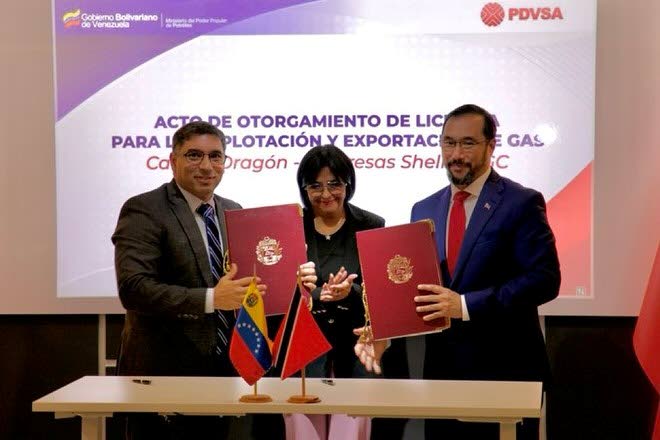Letting information flow

WHY WAS it left to an opposition MP to disclose a rudimentary detail of the Dragon gas field project with Venezuela?
The disclosure on Sunday, by Dr Roodal Moonilal, that a new company, NGC (National Gas Company) Exploration and Production Ltd (NGCE&PL), is listed in an official Venezuelan publication on the deal was embarrassing.
It suggests the autocratic regime of Nicolás Maduro is more accountable on this matter than the TT government.
This impression has only been worsened by the subsequent statements by Energy Minister Stuart Young, who has said the formation of a special-purpose company was the "normal and accepted course of business in the energy sector."
NGC also described this as "standard, global practice."
That there was nothing out of the ordinary begs the question: why was it only belatedly disclosed?
These exchanges between the Government and the Opposition point to the fact that this project falls within a special category for which there are no clear-cut answers when it comes to how much transparency is ideal.
Even so, absolutely no transparency is an untenable position.
Transparency is seen, by some people, as inimical to good business. Trade secrets, competition and legal conditions – they create a default position militating against the free flow of information.
But in some circumstances, a lack of accountability does more harm than good. For instance, if a company does not publicly file information about its operations and finances, it faces not only legal penalties but also conjecture.
The recent experience of the Paria Fuel Trading Company Ltd – a subsidiary of state-owned Trinidad Petroleum (Holdings) Ltd – would have been made worse were it not for the ventilation of all the issues raised in a commission of inquiry. It is to the Government’s credit that that inquiry was convened, though officials may have to take further action on issues raised by the findings.
In a mark of how unique the State’s approach to the Dragon project is, the Cabinet has not just failed to disclose basic details, it has actively shut down efforts to get information.
A private motion in the Senate was voted down; the matter was not placed before Parliament’s foreign affairs committee. Pertinent details were not given by the Prime Minister when reporters asked questions at a media briefing held to announce the deal.
The need to keep commercial matters secret because they are sensitive has been cited, in the face of overwhelming public interest. Dr Rowley himself has been at pains to state the project has implications for the children of this country and their future.
It is important to remember that part of that future will be shaped by our approach to transparency today.
Venezuela has fallen to the very bottom of Transparency International’s latest Corruption Perception Index, with only Somalia rating worse. This country has held on to its 76th place out of 180 countries.
But with Venezuela seemingly calling the shots on how much Dragon information gets out, who is to say whether we may not slip in decades to come?

Comments
"Letting information flow"